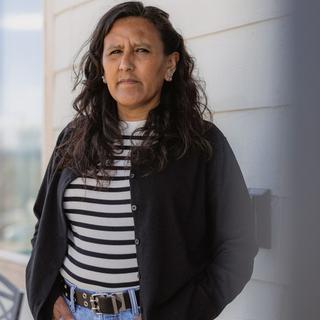


Denver, a sanctuary city resisting Trump's mass deportation plans
FeatureBacked by armored vehicles and cameras, the new US administration's mass deportation plan faces pushback from sanctuary cities like Denver, which refuse to assist federal immigration authorities. Despite threats to cut funding, organizations continue to support a population now forced to live in fear.
Jeanette Vizguerra is still here. She hasn't left the country and, no matter what Donald Trump and his loyalists think, she's not leaving, at least not without a fight. In 2017, after the inauguration of the man who had made Mexicans a prime target of his policies, the mother of the family had "entered sanctuary" – as she put it – much like taking religious vows. Taking refuge in the basement of a church in Denver, Colorado, she became the face of the undocumented people established for years in the United States but hunted down by the immigration police. Time magazine named her one of the 100 most influential people of 2017. Actress America Ferrera wrote a tribute to this courageous mother who had become a symbol of the sanctuary movement – a network of churches, cities and citizens refusing to cooperate in the arrest of their neighbors.
Eight years have passed. Vizguerra managed to stay in the US thanks to a temporary "stay of removal", renewed year after year, but is still subject to deportation. At this stage of the "mass deportation" campaign launched by Donald Trump, she preferred not to give her address over the phone. We met with her in a house in the western suburbs of Denver, in a neighborhood overlooking the freeway leading to the Rocky Mountains. A friendly neighborhood, judging by the murals of the Virgin of Guadalupe.
Vizguerra's children have grown up. Born in the US, they have American passports, by virtue of the birthright citizenship that Trump wants to remove from the Constitution. Luna, 20, is preparing to join the US army. Roberto, 19, has finished high school. At 10 years old, the children already knew how to behave if the police tried to arrest their mother. The two older ones would film the arrest on their cell phones and call her lawyer, while Zury, the younger one, would take refuge in her parents' bedroom. Today, this is the advice Vizguerra gives on the Facebook page where she teaches undocumented immigrants how to respond to police operations. Prepare the children. Give them a role, instead of letting them watch helplessly as their parents are forcibly separated.
You have 87.85% of this article left to read. The rest is for subscribers only.
